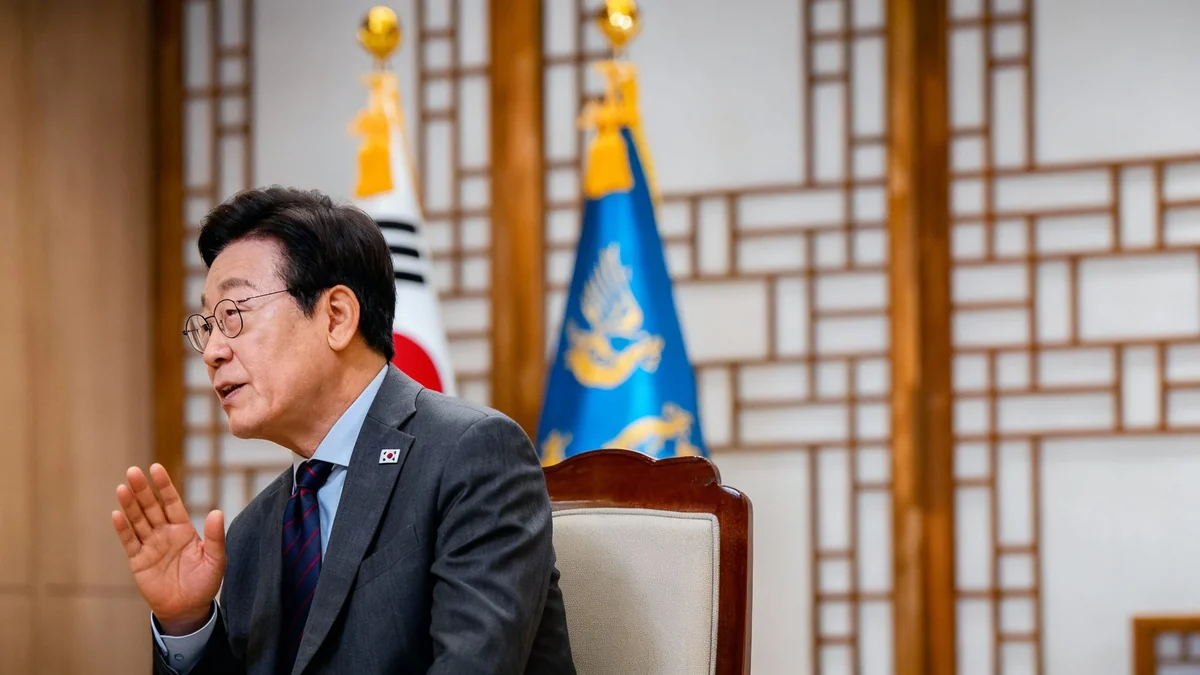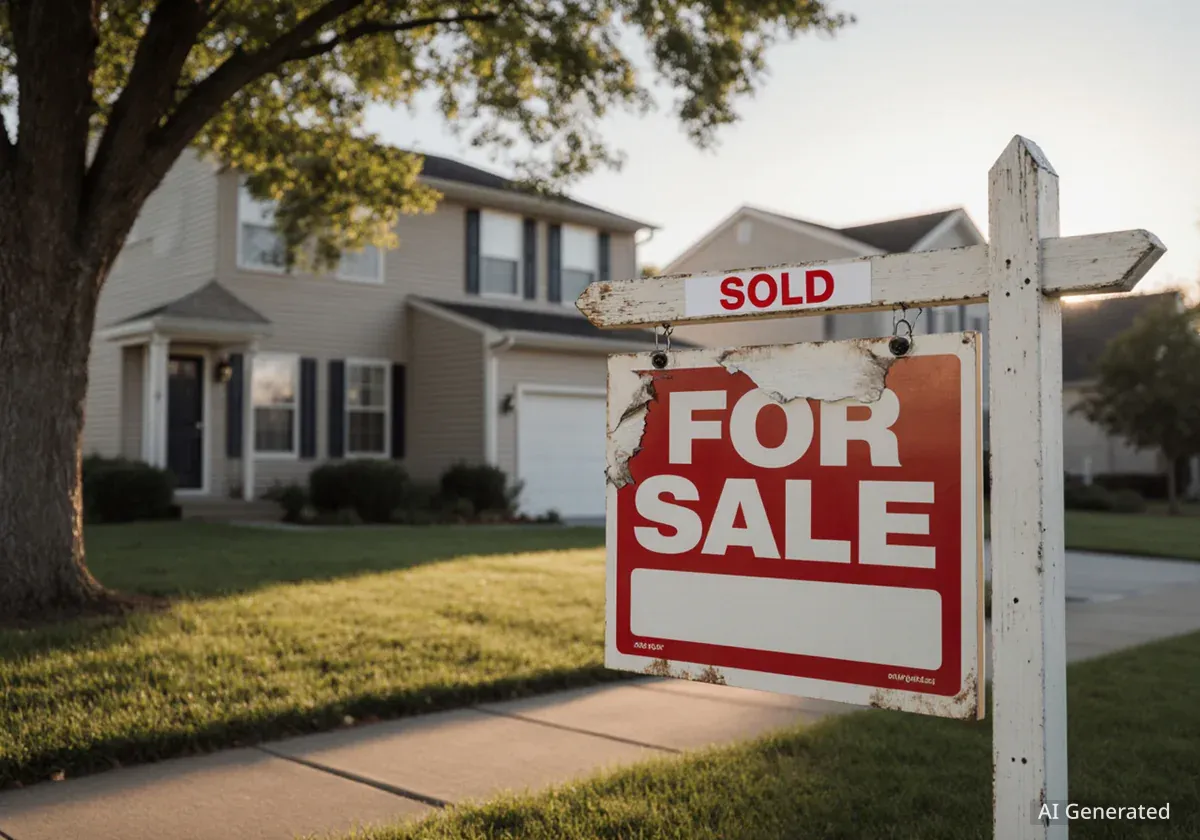South Korean President Lee Jae Myung has issued a stark warning about the nation's property market, describing it as a bubble on the verge of bursting. The statement came as he expressed support for the Bank of Korea's recent decision to hold interest rates steady, a move aimed at preventing further escalation of property prices.
The president's comments highlight growing concerns within the government about financial stability and the potential for a severe economic downturn similar to the one that impacted Japan for decades.
Key Takeaways
- President Lee Jae Myung described South Korea's property market as a bubble nearing its bursting point.
- He supported the Bank of Korea's decision to maintain current interest rates to curb property price inflation.
- The president explicitly warned against triggering a long-term economic stagnation, drawing parallels to Japan's "lost decades."
- Concerns are centered on high levels of household debt, which are closely linked to real estate loans.
A Direct Warning on Economic Stability
President Lee Jae Myung's recent remarks have sent a clear message to both the financial sector and the public: the risk of a housing market collapse is a primary concern for his administration. He emphasized that it is imperative to manage the situation carefully to avoid a severe economic crisis.
His support for the Bank of Korea’s decision to hold its benchmark interest rate signals a shift in focus towards taming asset inflation, even as other economic pressures exist. The central bank is walking a fine line, attempting to control rising property values without stifling broader economic growth.
The president's intervention underscores the gravity of the situation. By publicly backing the central bank's cautious stance, he aims to align government policy with monetary strategy to prevent the property bubble from expanding further.
The Bank of Korea's Stance
The Bank of Korea has maintained a hawkish position on interest rates for an extended period, primarily to combat inflation. However, the secondary effect of high borrowing costs is the cooling of the real estate market. A decision to lower rates could reignite property speculation, a risk the government and the central bank appear unwilling to take.
Parallels to Japan's Economic Stagnation
In his statement, President Lee drew a direct comparison to the economic troubles that afflicted Japan starting in the early 1990s. This reference to Japan's "lost decades" is a powerful warning against the dangers of a burst asset bubble.
Japan's crisis was triggered by the collapse of both its stock market and its massively inflated real estate market. The subsequent fallout led to a prolonged period of economic stagnation, deflation, and banking crises from which the country struggled to recover for many years.
The president stressed the importance of avoiding the kind of economic malaise that afflicted Japan, indicating that preventing a similar long-term downturn is a top priority for South Korea.
The concern is that a sudden drop in South Korean property values could have a similar domino effect. It could erode household wealth, trigger a wave of loan defaults, and place immense strain on the country's financial institutions, ultimately leading to a protracted recession.
The Role of Household Debt
At the heart of South Korea's housing market concerns is the country's high level of household debt. For years, low interest rates encouraged borrowing, with a significant portion of that credit flowing into real estate investments and mortgages.
Debt-to-GDP Ratio
South Korea consistently ranks among the countries with the highest household debt-to-GDP ratios in the world. This high leverage makes the economy particularly vulnerable to shocks in the property market or sudden changes in interest rates.
This mountain of debt means that many households are financially exposed. If property values fall, homeowners could find themselves with negative equity, where their mortgage is worth more than their home. A rise in unemployment or a slowdown in the economy could make it difficult for many to service their loans, risking a cascade of defaults.
The government's challenge is to orchestrate a soft landing for the property market—allowing prices to stabilize or gently decline without causing a panic or a crash that would destabilize the entire financial system.
Navigating a Precarious Path Forward
The president's statement places the property market at the center of South Korea's economic policy discussion. The path forward requires a delicate balancing act.
Policy options are being carefully considered to manage the situation. These may include:
- Continued Monetary Tightness: Keeping interest rates at a level that discourages speculative borrowing.
- Macroprudential Measures: Implementing stricter lending rules, such as lower loan-to-value (LTV) ratios, to curb excessive borrowing for property purchases.
- Increasing Housing Supply: Long-term plans to build more housing units to address supply-demand imbalances, particularly in major urban centers like Seoul.
For now, the message from the top is one of extreme caution. The administration is signaling that it will prioritize financial stability over short-term economic stimulus, especially if that stimulus risks pouring more fuel on the property market fire. The goal is to slowly deflate the bubble, not to watch it burst.





